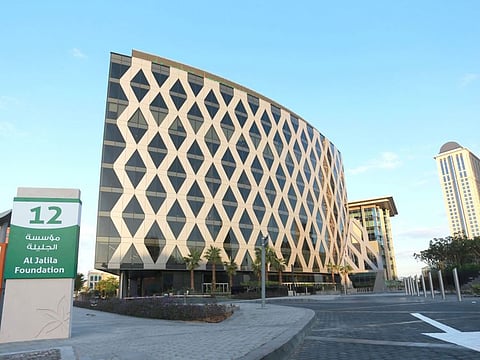Dubai to launch first robotic biobank in UAE to advance medical research and discovery
Al Jalila Foundation to invest Dh17 million to build state-of-the-art facility

Dubai: Al Jalila Foundation, a member of the Mohammed Bin Rashid Al Maktoum Global Initiatives, announced that it will establish the UAE’s first robotic biobank, in partnership with the Mohammed Bin Rashid University of Medicine and Health Sciences (MBRU) and the Dubai Health Authority (DHA). The collaboration is set to advance medical research in the areas of genetic disorders, cancer and other chronic diseases and pandemics.
Set to open in 2023 with a capacity to manage seven million specimens, the biobank will be one of the world’s largest in terms of sample capacity. The facility will be located at the Mohammed Bin Rashid Medical Research Institute, part of Al Jalila Foundation, in Dubai Healthcare City.
Due to the vital role biobanks play in progressing research and advancing medical discovery, the biobank will become an indispensable resource for the new Hamdan Bin Rashid Cancer Charity Hospital and other health-care facilities in the UAE to conduct research and offer effective treatment.
‘Strengthening capabilities of health-care sector’
Sheikh Ahmed bin Saeed Al Maktoum, Chairperson of Al Jalila Foundation Board of Trustees, said: “Access to genetic and imaging data through biobanks is driving forward pioneering approaches to analysis that would have been impossible just a few years ago. The launch of the UAE’s first robotic biobank reflects Dubai’s commitment to strengthening the capabilities of the health-care sector and advancing efforts to improve people’s health. The biobank will serve as a major contributor to the advancement of modern medicine and will enable scientific discoveries that will help enhance the health and wellbeing of the community.”
A biobank is a place to store all types of human biological samples, such as blood, tissue, cells, or body fluids. It also stores data related to the samples as well as other biomolecular resources that can be used in health research. Biobanks have become an important resource in medical research, supporting many types of contemporary research like genomics and personalised medicine and the development of diagnostics and therapeutics.
‘Game-changer for health care’
Al Jalila Foundation is investing Dh17 million to build a state-of-the-art facility and will manage seven million human biological materials. An automated, robotic, Artificial Intelligence based system will ensure biological samples are secured in cryogenic storage (below 80 degrees Celsius), maintaining proper sample integrity and retrieval.

‘Finding better therapeutics and diagnostics’

Patient confidentiality will be a priority in line with UAE’s laws and regulations. The biological and medical data will be used by scientists for research to make new discoveries about common and life-threatening diseases such as cancer, heart disease and stroke in order to improve public health.

Strategic collaboration opportunities
The UAE’s first robotic biobank will attract strategic collaboration opportunities with key healthcare authorities and partners across the region and globally. The collaborations will support pioneering biomedical research and accelerate medical discoveries to transform patients’ lives.
It will operate in the best practices in biobanking and adhere to the highest compliance regulations and ethical standards for the collection, processing, storage and analysis of biological samples and data for research into genetic and environmental factors that impact on human health and disease.
Sign up for the Daily Briefing
Get the latest news and updates straight to your inbox



